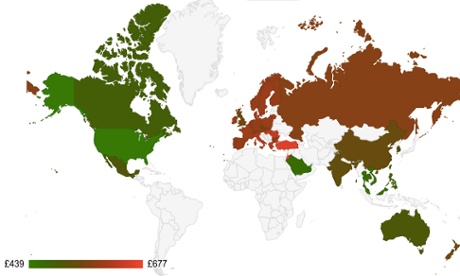Megan McArdle is convinced that despite the appeal, any form of guaranteed income is doomed to fail. She provides four strong reasons for this, but I think the strongest reason is sheer mathematical impossibility:
Not a few libertarians have embraced the idea as an alternative to the welfare state. Get rid of all the unemployment insurance and just cut everyone a check once a month. There’s a lot to like about this: It has minimal overhead, because you don’t need to verify eligibility beyond citizenship, and it may reduce some of the terrible incentives that poor people face under the current system.
There are a couple of problems with this, however. The first is that zeroing out our current income security system wouldn’t provide much of a basic income. Total federal spending on income security (welfare, unemployment, etc.) is under $600 billion a year. There are 235 million adults in the U.S. Millions of those are undocumented immigrants, but that still leaves you with a lot of people. Getting rid of all of our spending on welfare and so forth would be enough to give each of those people less than $3,000 a year. For a lot of poor people, that’s considerably less than what they’re getting from the government right now.
The problem is that if you try to bring it up to something a bit more generous, the cost quickly escalates. Cutting everyone a check for $1,000 a month, which most people in that room would consider too little to live on, would cost almost $3 trillion. But if you means-test it to control the cost, or try to tax most of the benefits back for people who aren’t low-income, you rapidly lose the efficiency gains and start creating some pretty powerful disincentives to work.
$12,000 a year isn’t enough to live on in a major city — which is where a lot of the people you’re hoping to help are living — and providing higher guaranteed income to those living in more expensive areas will create an incentive that will draw more people into the qualifying areas. Excluding immigrants from the benefits will exacerbate the already serious problems some areas have with their illegal immigrants (and create yet another barrier for legal immigrants over and above what is already in their way, as documented here).
Switzerland is reported to be considering a guaranteed income plan. As Megan says, it’ll be an interesting experiment if they do:
In general, I am wary of exciting results from small pilot programs. Most of those programs fail when they’re rolled out statewide, either because the result was spurious or because the exciting work of a small, dedicated group just can’t be replicated in a gargantuan state bureaucracy.
I will be very happy if Switzerland decides to mail a check for a couple of thousand dollars to every citizen every month; it will be fascinating to see what results this has. But I am skeptical that those results will, on net, be good ones.





